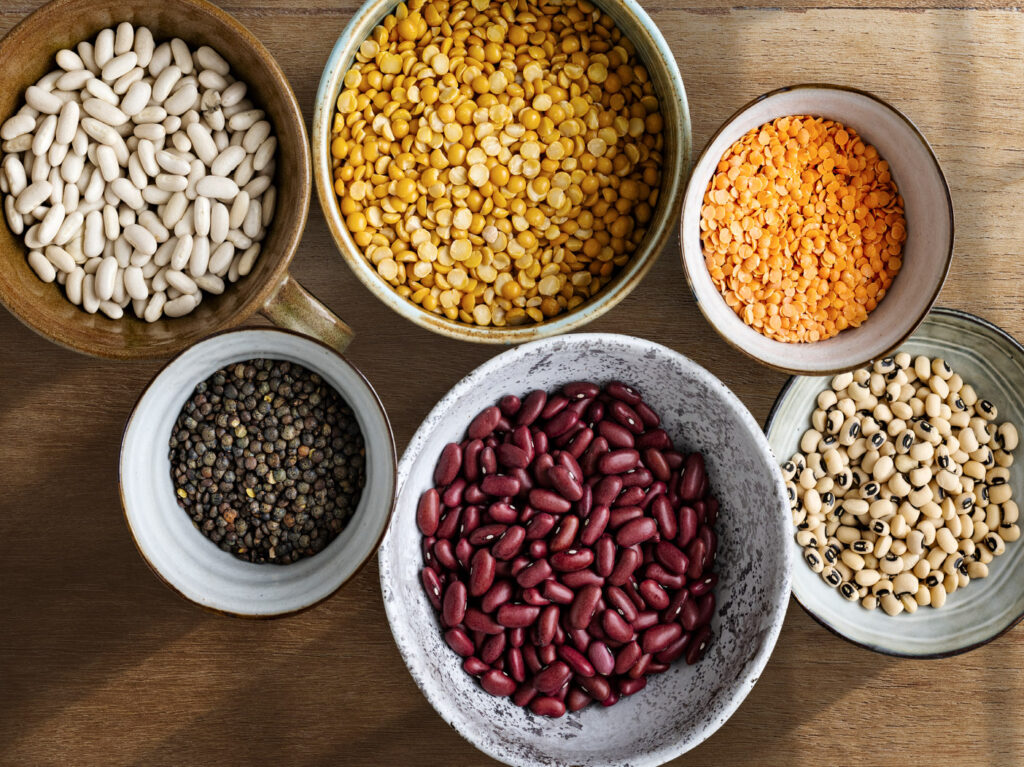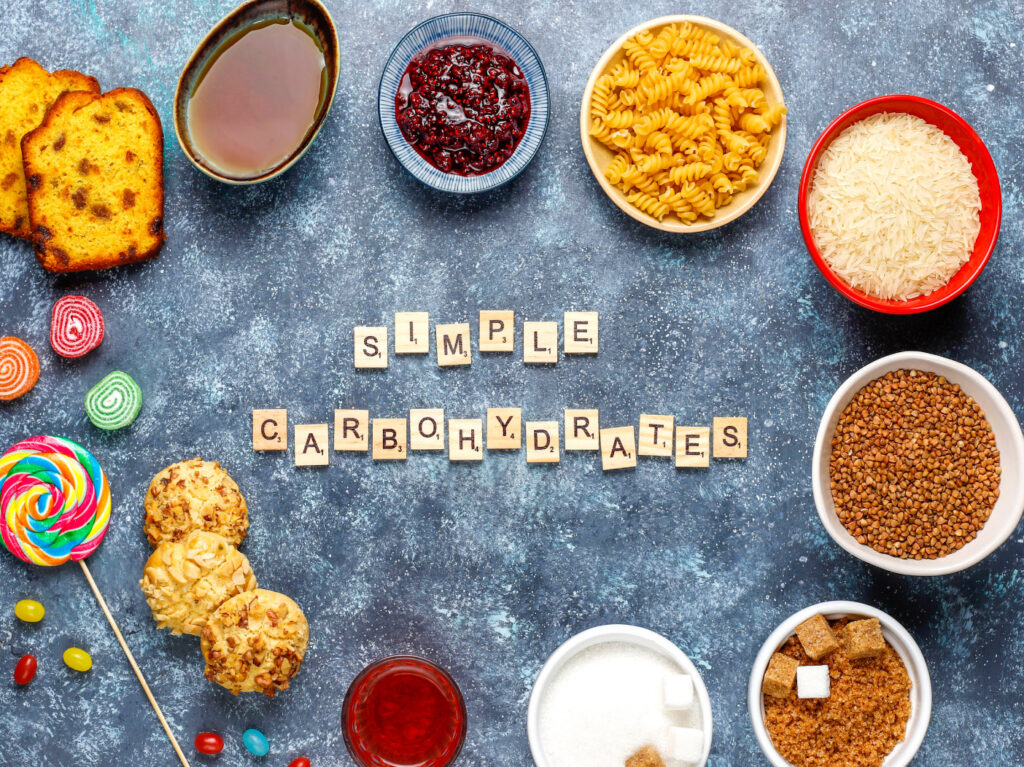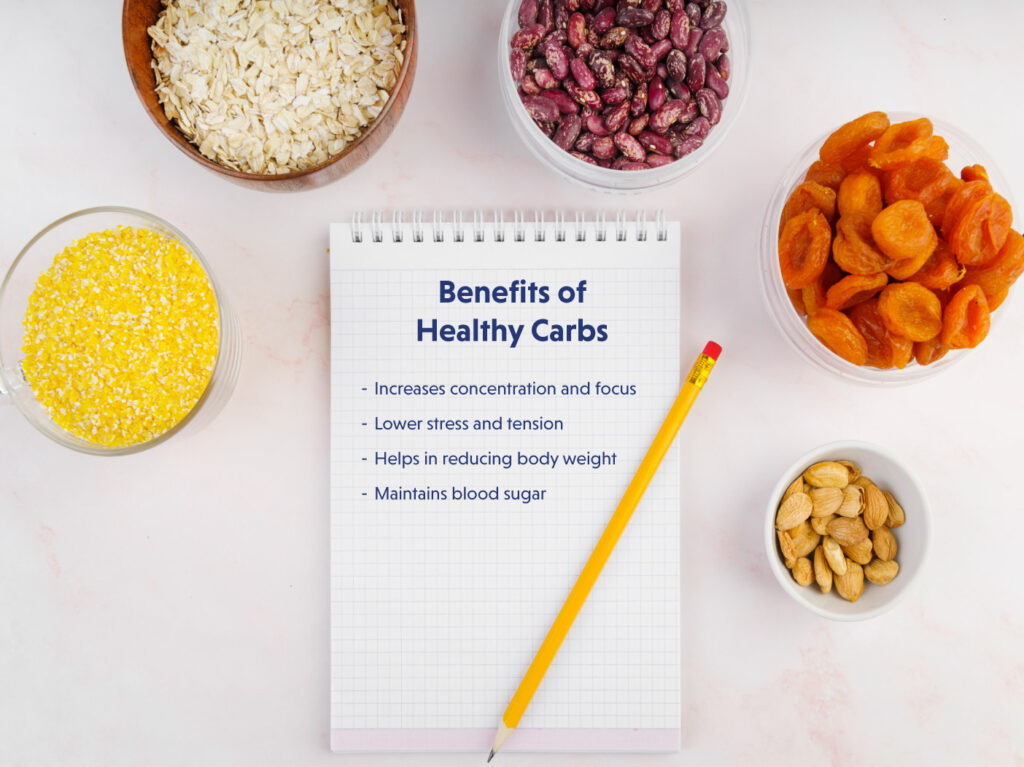Carb Foods That Are Incredibly Healthy And Can Change Your Life Forever
Carbohydrates are found in many different forms, and each serves a specific purpose. Good carbs should be included in a healthy diet, and there are others that should be avoided. This article on good carbs vs bad carbs will look at which carbs in foods are healthy for you and which are bad for the body.
Healthy vs unhealthy carbohydrates are an essential part of a healthy diet. The difference between good and bad carbohydrates is the effect they have on your blood sugar. Bad carbs spike blood sugar, causing it to rise rapidly. Good carbs are digested slowly causing blood sugar that increases gradually.
Carbs are not the enemy, but it’s important to eat them wisely. In order to maintain health, the body needs to make use of carbohydrates. These sugars, starches, and fibres make up the main source of fuel for the body, being used in all cells as an energy source. When a person consumes carbohydrates, they are absorbed into the bloodstream through the small intestine as glucose. This sugar is what gives you energy and allows you to go about your day.
What are carbohydrates?
Carbohydrates, also known as starches, are one of the three macronutrients, along with fats and proteins. Carbohydrates are made of sugar units called saccharides, which are a combination of carbon (C), hydrogen (H), and oxygen (O). Sugar forms the backbone of the energy-giving molecule adenosine triphosphate (ATP).
A carbohydrate is a nutrient that includes fiber, starch, and sugars.
Extra fiber and whole grains are excellent sources of complex carbohydrates. These carbs are bound together in a way that keeps them from being broken down into simple sugars by the body. This happens so you don’t spike your blood sugar (and insulin) as much as you would with refined carbohydrates like white bread or white rice.
Types of Carbohydrates
The classification of carbohydrates is important because different carbohydrate sources have significant effects on health and maintaining a healthy diet. Some carbohydrate foods, like fruits, vegetables, and beans, have received positive attention because they have many vitamins, minerals, and phytochemicals. However, there are also negative effects of certain carbohydrates. These bad carbs have been associated with the growing obesity epidemic in the United States.
The amount of energy that is available from a given quantity of carbohydrates depends on the type of carbohydrate. The more easily a carbohydrate is digested and absorbed, the more energy is available from that source.

There are two types of Carbohydrates.
- Simple
- Complex
The difference between simple and complex carbohydrates is their chemical structure and the body’s ability to digest them. Complex carbohydrates, or starches, cannot be immediately broken down by the body and must first be broken down into simpler forms of sugar (monosaccharides) before they can be used for energy.
Simple carbohydrates, or sugars, break down more rapidly and can be used directly for energy. Foods that contain a mixture of both simple and complex carbohydrates are often referred to as “starches.” Some examples of carbohydrates in our food supply include

Sugar – simple carbohydrate
Galactose – a simple carbohydrate
Raffinose – simple carbohydrate Starch – a complex carbohydrate
Cellulose – complex carbohydrate
Benefits of healthy carbs:

Carbohydrates are a source of energy, this is why they are crucial in our diet. They are an important source of nourishment for our bodies. Some benefits of healthy carbs are:
- Increases concentration and focus
- lower stress and tension.
- Helps in reducing body weight
- Maintains blood sugar
Carb foods that are incredibly healthy
High Fiber Carbohydrates
Whole Grains, Lentils, Black beans, Chickpeas, Kidney Beans, Black-eyed Peas, Pinto Beans and Lima Beans are great sources of both soluble and insoluble fiber.
Low Sugar Carbohydrates
Prunes, Apricots, Plums and Bananas are excellent sources of fiber and contain a glycemic load of 7 or less.
Moderate Sugar Carbohydrates
Peaches, Cherries, Oranges and Apples contain a healthy dose of fiber and have a glycemic load of 15 or less. Eating the skins or adding extra fiber in the form of chia seeds or psyllium husks will lower the glycemic load even further.
Tips for choosing healthy carbs
- Focus on healthy carbs
Carbohydrates are one of the three macronutrients, along with proteins and fats. Carb foods that are incredibly healthy include most vegetables, whole grains, fruits, beans and dairy. These foods get broken down into simple sugars during digestion that provides your body with energy. Simple carbohydrates include sugary foods and drinks like candy, cookies or soda, which provide a quick boost of energy but are not as filling. Therefore, eating too many simple carbs can lead to weight gain. Thus avoid these and focus on healthy carbs.
- Intake substitutions
Choose whole grains and complex carbs over refined ones. Whole grains that are not refined are the ideal choice. When grains are refined, the fiber, nutrients and phytochemicals are stripped away. Thus, if you must eat carbs, stick to whole grains.
- Know about good and bad carbs
Good carbs are the ones that are high in fiber, low in sugar and cholesterol, and offer good nutrition. They can be found in whole grains, fruits, vegetables and beans.
Bad carbs are those that are high in sugar and have poor nutritional value. They include refined grains such as white bread and crackers, sugary beverages including soda and sports drinks, sweets such as candy bars and cookies, potatoes, corn syrup or other sweeteners used to sweeten food or drinks and white pasta.
- Refer to food labels while choosing
Did you know that how you perceive the nutritional value in food may not be what you think?
A food label is a helpful tool to help you choose healthy carbohydrates. The Food and Drug Administration (FDA) recommends the food maker provides 100% of the amount of Nutrition Facts Panel
How many carbs in a day are healthy?
How many carbs you need for good health depends on your individual goals. A healthy diet should include a mix of complex (healthy) and simple (unhealthy) carbs, but the amount of each you choose will depend on your individual needs.
The recommended amount of carbohydrates per day varies according to age and sex but typically ranges from 45–65% of total energy intake. For example, an adult male aged between 19 and 30 years old needs around 2,000 calories per day. If he chooses to eat 3 meals that contain no more than 50g of carbohydrates per serving, he can easily reach his daily target with only 200g of carbohydrates per day (breakfast: 50g; lunch: 50g; dinner: 50g).
All in all, it can be stated that the only difference between good and bad carbohydrates is the effect they have on health. Depending on your health goals, both can be consumed in a healthy diet. Joy Score is an easy-to-use smartphone app that can help you to track your daily nutrition intake. So what are you waiting for? Download our app today and start eating healthy!
To know more about Carb Foods That Are Incredibly Healthy Download the JoyScore App Now!


